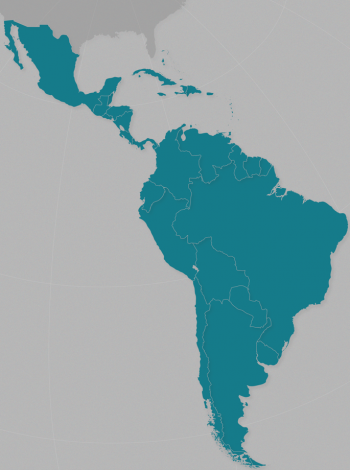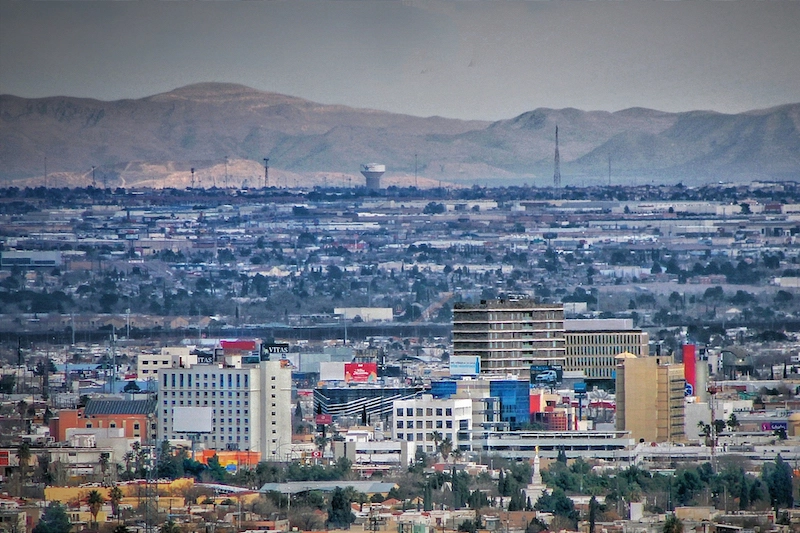As corporate boosters push to shift supply chains from China to northern Mexico, military expansion in the borderlands secures manufacturing zones for transnational capital.
In 2021, in the middle of the Covid-19 pandemic, industry promoter Jon Barela testified at a joint hearing of the Texas House. CEO of the Borderplex Alliance—an El Paso, Texas-based economic development organization representing the leading voices of the maquiladora, construction, and fossil fuel industries on both sides of the U.S.-Mexico border—Barela spoke at length about “an incredible, maybe once in a generation opportunity.” He was referring to the benefits of nearshoring—a term used by pundits, journalists, and government actors to refer to the relocation, or return, of manufacturing from China to the U.S.-Mexico borderlands.
Barela and his associates hope that these relocation efforts will target the “Paso del Norte region,” a historical moniker local elites use to refer to the binational region encompassing the cities of El Paso and Ciudad Juárez. He predicted a coming wave of nearshoring—“at least 100,000 jobs to the border region if we play our cards right”—due to the borderlands’ longstanding importance as a major manufacturing hub.
Ciudad Juárez, the birthplace of the maquiladora in the 1960s, is densely packed with (mostly) foreign-owned factories where goods are manually assembled for export, mainly to U.S. markets. In his testimony, Barela linked nearshoring to transnational corporations’ efforts to reduce transportation and labor costs and to combat supply chain disruption. This, he argued, was particularly important in the context of the Covid-19 crisis, which saw companies scrambling to fulfill orders as factories shut their doors during the pandemic’s onset.
In his remarks, Barela also highlighted geopolitical tensions between the United States and China as a driver of the coming “return” of manufacturing to the U.S.-Mexico borderlands. He argued that Chinese President Xi Jinping’s revival of the “common prosperity” concept in 2021 has amounted to “a return to Maoism.” “For that reason,” he said, “businesses are getting scared, and they are looking at very much returning to North America for manufacturing and other investments.”
Barela’s invocation of Maoism is representative of a wave of anti-China rhetoric leveraged by pundits and politicians in the United States, where transpacific economic competition has become increasingly wedded to a haphazard reignition of Cold War lingo. In this context, the movement of manufacturing from China to the U.S.-Mexico borderlands is depicted as a national security concern or political imperative, de-linked from the ongoing restructuring of global supply chains by transnational corporations seeking to lower production costs.
read more: https://nacla.org/nearshoring-and-militarization-us-mexico-border
He argued that Chinese President Xi Jinping’s revival of the “common prosperity” concept in 2021 has amounted to “a return to Maoism.” “For that reason,” he said, “businesses are getting scared, and they are looking at very much returning to North America for manufacturing and other investments.”
Running away from the country with an enormous and growing middle class so you can start from scratch on the border of a country that’s falling apart?
Bold move Cotton. Let’s see if it pans out.


